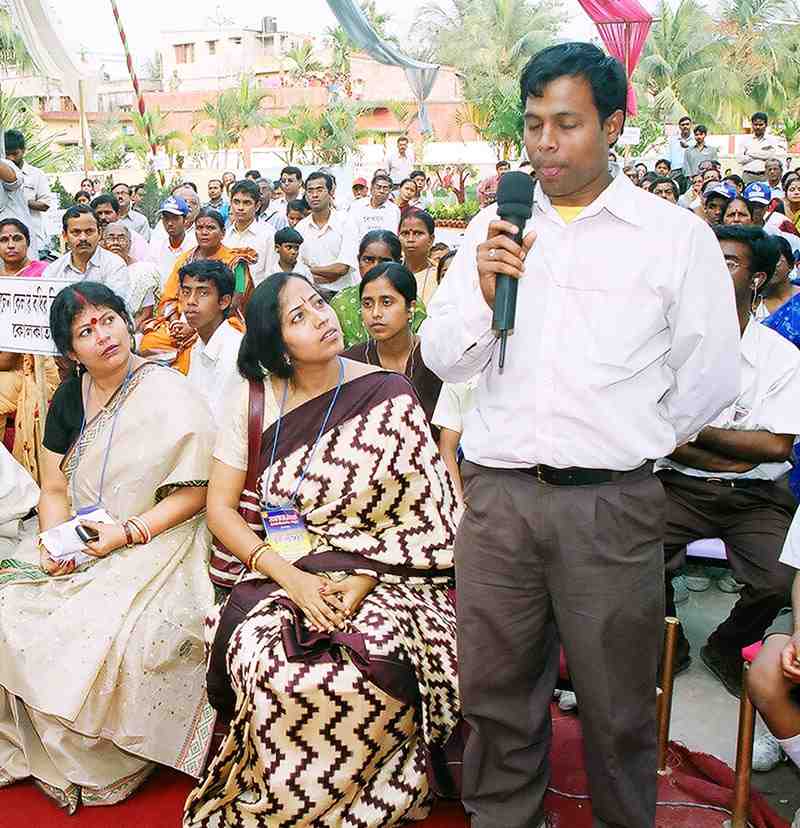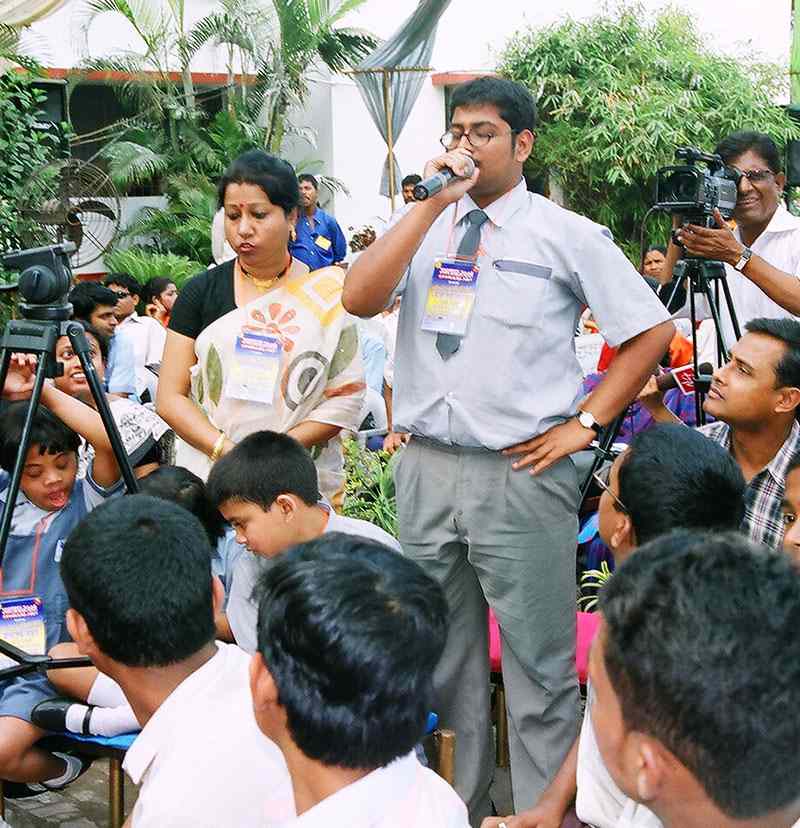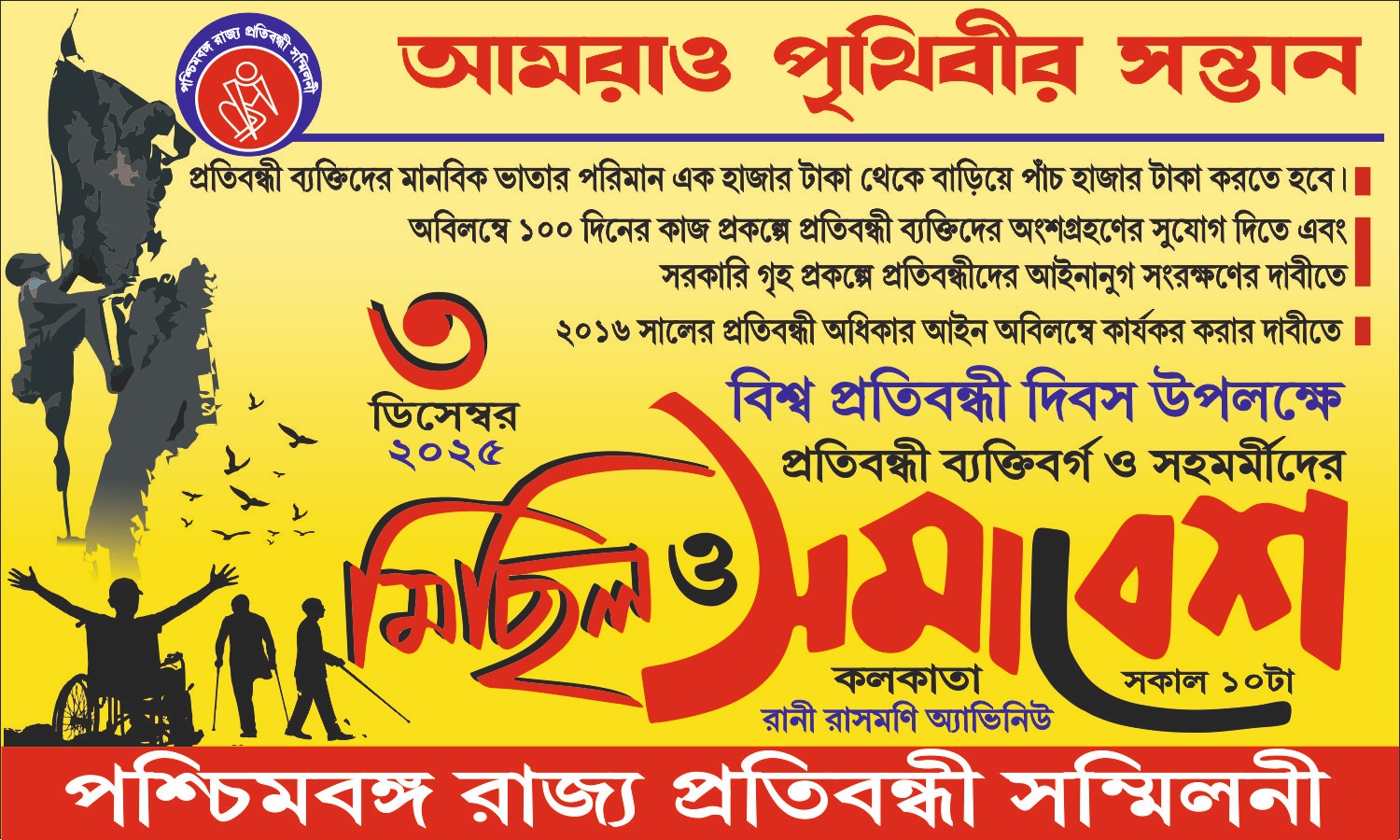ADVOCACY

What?
PRPS, since its inception, has been working with the motto of social recognition and economic rehabilitation of persons with disability. To achieve our motto, we have organized many mass campaigns, and we collaborate our efforts with many other organizations working in the sector.
Time and again, we have highlighted the lack of application of whatever little is given in the laws for the disabled. Also, we have constantly been seeking to expose the non-implementation of barrier-free environments for the disabled.
Why?
Social justice can only be achieved through planned, organized, and sustained advocacy.
We believe such advocacy should lead to favorable public policy and practice, corporate policy and practice, public attitude and behavior, and resource allocation to involve the disabled in the decision-making process for empowering them.


Why?
Social justice can only be achieved through planned, organized, and sustained advocacy.
We believe such advocacy should lead to favorable public policy and practice, corporate policy and practice, public attitude and behavior, and resource allocation to involve the disabled in the decision-making process for empowering them.
How?
- We are one of the very few organizations that called for a rights-based disability policy in the days before the PWD act was enacted in 1995. Our efforts in collaboration with other organizations later culminated into having a string of laws such as Mental Health Act, 1987, RCI Act, 1992, PWD Act, 1995,National Trust Act, 1999 and RPD Act 2016.
- We had a consistent demand for free issuance of health certificates and identity cards for persons with disability. As a result of our campaign, today, a disabled person can obtain a free certificate from even a local sub-divisional hospital.
- Since 1993 and till date, PRPS has been conducting mass congregation of persons with disability to promote awareness of the rights of persons with disability. The year 1995 marked the enactment of Persons with Disability Act (PWD Act, 1995). On enactment, we conducted mass deputations and programs for speedy implementation of the act at all administrative levels from Panchayat till the State. Disability being a State chapter, we worked closely with State government departments such as transport, education, social welfare,health, mass education, police and others to create barrier-free environment in each of their functions.
- The PWD Act, 1995 specified only about seven types of disability. The act had excluded mental retardation, autism, cerebral palsy and other developmental defects. We were among the first organizations to advocate with the government to implement a separate act for such disabilities, which later transpired into National Trust’s Act, 1999.
- Our sustained efforts resulted in implementation of National Policy on Disability in 2006.
- The United Nations proclaimed UNCRPD in 2006. India signed UNCRPD in 2007 that was later ratified in 2008. We believed firmly that a law had to be enacted in line with UNCRPD and approached the government. After much struggle, the draft act was then referred to a standing committee and Rights of Persons with Disability Act (RPD Act) was passed by the Parliament of India in 2016. This is one of the laudable successes for PRPS as an organization that insisted on having a rights-based discourse on disability that was proclaimed in the first PRPS national convention held in 1990.
- We have also been organizing workshops and conferences at all administrative levels to create better understanding on the RPD Act. Such activities focus on having audiences from all levels of the government and public.
- We have translated the RPD Act in Bengali for easy comprehension by all the stakeholders including the general public. Thus, we are also the first organization to translate the RPD Act into a regional language.
- We observed “White Cane Day” on 15 October 2013 to raise awareness of the challenges encountered by persons with visual disability while travelling. We have been consistently raising demands related to availability of health care facility for persons with disability. Audiometric and clinical assessments aided by psychologists and psychiatrists are now being performed in some government hospitals.
- We often conduct legal clinics in different parts of the State. The legal clinics offer legal services to persons with disability in need. We have been organizing multitude of programmes to create awareness among the people in general and persons with disability and their caregivers in particular. Each alternate year, we organize a congress for the professionals working in disability sector to raise particular issues and create better understanding of the problems of different disabilities and to find out newer avenues to solve the problems. The theme of the last congress was “Economic Rehabilitation: Problem and Prospect.” The congress is generally attended by various national and international organizations working on disability.
Road ahead
Our experience over nearly the last three decades shows that advocacy movements are to be integrated with constructive actions to reach a large number of people with disability. We have been doing exactly that through a national platform named “National Platform for the Rights of the Disabled (NPRD).” Through NPRD, we are working with organizations in about 16 States.
Our advocacy initiative for the decade ahead will focus on following –
- We have been demanding the implementation of disabled-friendly measures in buildings such as hospitals, schools, colleges, institutions, and every building in the country. It is imperative that modifications are made to the existing national building code to encourage the construction of disabled-friendly infrastructure with accessible signages. Similar is the case with transport systems.
- We have been demanding that inclusiveness be adapted in both pre-schools and formal schools. Thus, we have been demanding that disability has to be included in the Integrated Child Development Services (ICDS) program.
- Incidents of sexual assault on women with disability have escalated alarmingly in recent times. Women with disability often face discrimination and denial of justice due to their gender and disability. Also, many incidents of sexual assault go unreported due to various social reasons. Thus, we have been arranging multiple programs ranging from discussions to protest actions to bring these incidents to notice and to pitch for a more proactive administrative engagement against the perpetrators of such heinous crimes.
- As discussed earlier, representation of disabled in higher education is abysmally less. On our rights-based approachystem. towards disability, we have been conducting workshops with disabled students pursuing higher education to fight for their rights from their college days. We have submitted our requests to the government for an impartial process option for persons with disability in government jobs.
- We have made necessary submissions for a longstanding demand to induct a single language education system for the hearing disabled people instead of the present two-language system.
- We are requesting the government to include all persons with disability in the automatic inclusion category of BPL, so that they can get their due benefits provided by thegovernment.
- We also have demanded the government that they give fare concession (at least 75%) in local and passenger trains for all kinds of persons with disability along with their escorts.
- We have been working on implementing a dedicated health insurance scheme for persons with disability. We now intend to approach the government to roll-out special schemesfor disabled under Ayushman Bharat.
- We have also requested the government to establish atleast one integrated training-com-production centre forpersons with disability in each district and also establish at least one respite care home for persons with psychosocial disability in each district.
- War is among the significant perpetrators of disability. Therefore, PRPS strongly advocates against any war.
ADVOCACY
1990
1990
1993-2019
1993-2019
1995
1995
1996
1996
1997
movement by PRPS
1997-99
2007-2016
passes RPD Act in 2016.
2018-2019
Bookfair

